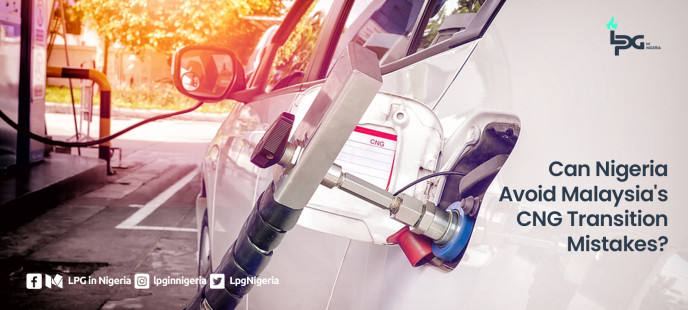- 3214
- 0
Sharing Ideas and Updates on LPG in Nigeria and related information to enable effective collaboration within the LPG Value Chain
Can Nigeria Avoid Malaysia's CNG Transition Mistakes?

As Bayo Onanuga, Special Adviser on Information and Strategy to the President, recently pointed out, Malaysia's transition to Compressed Natural Gas (CNG) faced significant hurdles and ultimately fell short of expectations. Announcing on his official X account, Onanuga highlighted how safety and cost concerns led Malaysia to abandon its CNG program after a 15-year effort that resulted in only 45,000 vehicle conversions, a mere 0.2% of all vehicles in the country. He emphasized that Malaysia’s struggles are lessons Nigeria can learn from as it pursues its own CNG initiative.
Malaysia’s case was complicated by factors Nigeria hopes to avoid. The Malaysian government faced safety challenges with the widespread use of Liquefied Petroleum Gas (LPG) in modified vehicles. Transport Minister Anthony Loke voiced concerns over car owners adapting their vehicles to run on LPG cylinders, a practice that raised safety alarms due to the inherent risks of LPG use in non-standardized settings. This issue isn’t relevant to Nigeria, however, as our strategy centers solely on CNG and not LPG.
Despite the failure of Malaysia’s CNG transition, Onanuga’s optimism for Nigeria's approach lies in our country’s proactive preparation. He mentioned that Nigeria has begun establishing local CNG tank manufacturing in the first year of the initiative, which could help avoid the costly replacement issues Malaysia faced after the 15-year lifespan of its CNG tanks ended. By setting up local manufacturing capacity early on, Nigeria aims to create a more sustainable program, unlike Malaysia, which was forced to revert to petrol due to a lack of local support for CNG technology.
My Perspective: Is It Feasible for Nigeria to Succeed Where Malaysia Didn’t?
As I reflect on the ambitious goals of Nigeria’s CNG program, I do wonder: with our larger population, limited infrastructure, and varying socio-economic realities, can we realistically avoid the pitfalls Malaysia encountered? Nigeria faces unique challenges, including a high demand for affordable transportation, fluctuating fuel prices, and a need for reliable energy sources. These factors certainly add complexity to any large-scale transition, especially in the energy sector.
However, I believe that Nigeria's advantage lies in learning from the experiences of countries like Malaysia. With a proactive approach to manufacturing and safety standards, Nigeria has an opportunity to build a more resilient CNG infrastructure. Unlike Malaysia, which had to contend with safety issues arising from LPG modifications, Nigeria’s singular focus on CNG can allow for a more controlled, standardized implementation.
That said, successful implementation will require a robust public awareness campaign, government incentives, and significant investments in infrastructure. Ensuring that CNG stations are accessible and educating the public on safe CNG usage will be critical. Additionally, the government must ensure that the manufacturing and maintenance ecosystem can keep up with demand as the program scales.
Hence, while Nigeria’s path is undoubtedly challenging, I believe that by taking a careful, phased approach and learning from Malaysia’s experience, we can avoid some of the major setbacks they faced.
















0 Comment.